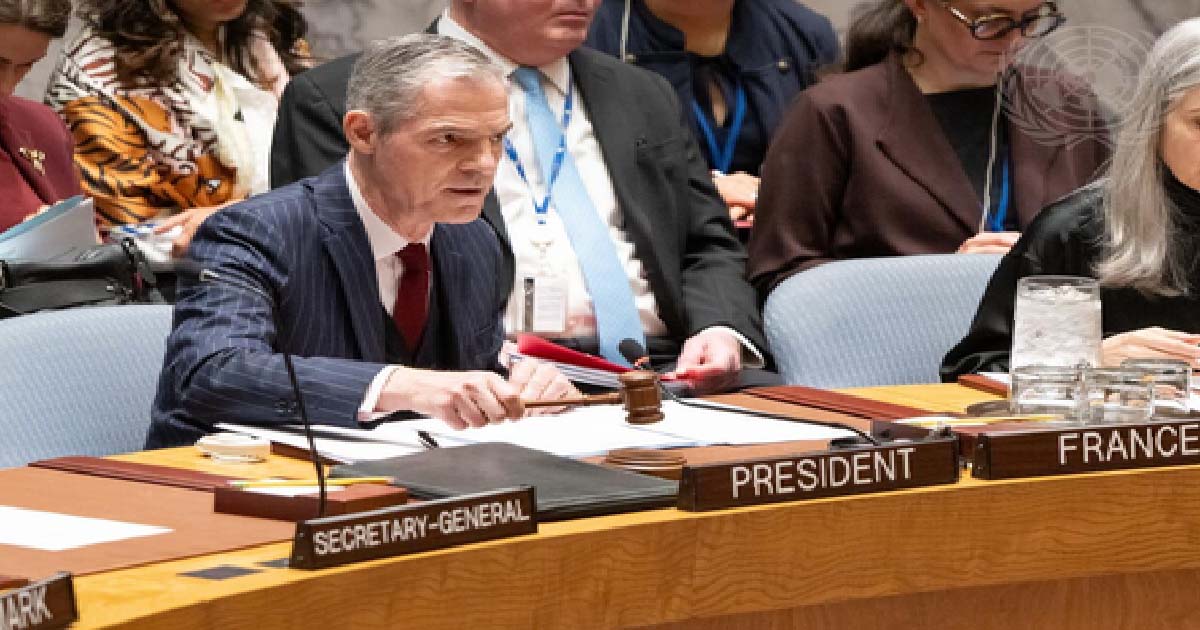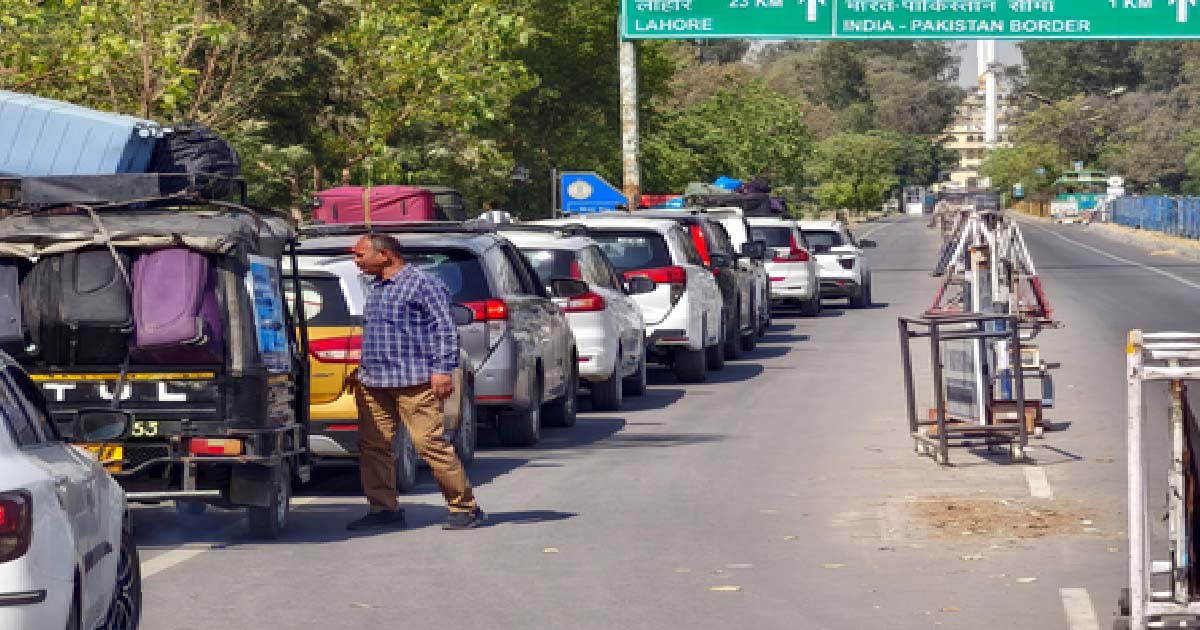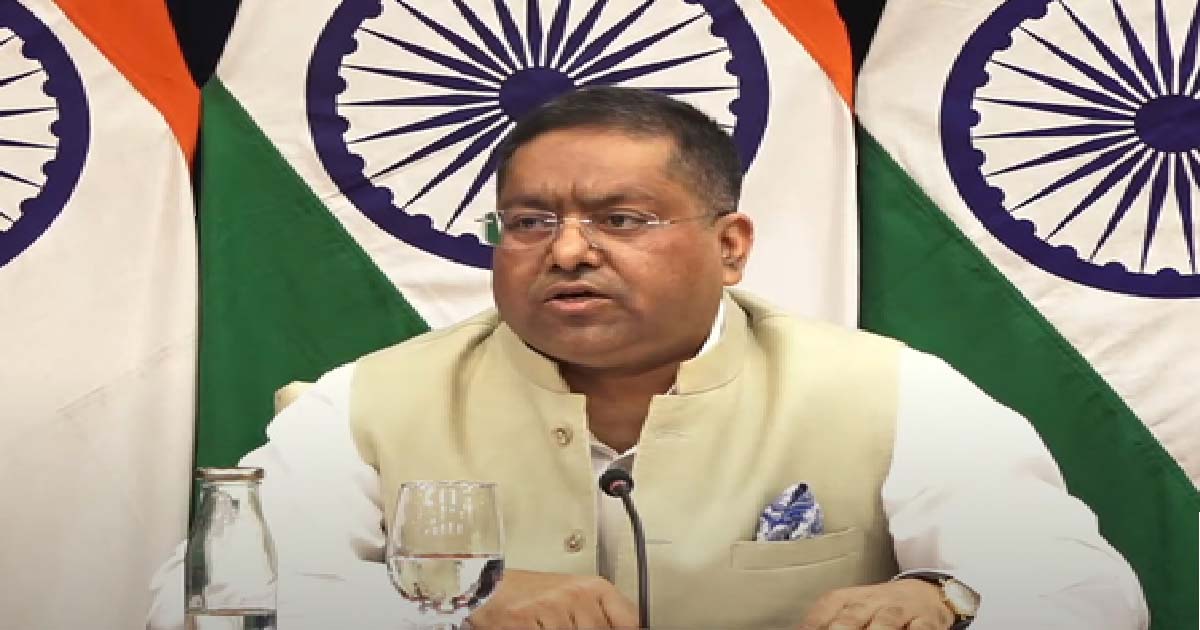International
1st Test, Day 1: New Zealand strike back to maintain balance against England

After a flying start with the ball, England imploded with the bat against New Zealand, who managed to maintain the balance on the opening day of the first Test, here on Thursday.
A total of 17 wickets fell on Day 1 as both England and New Zealand seamers put in a similarly incisive performance with the ball at Lord’s helpful surface.
England pacers wreaked havoc to bowl out New Zealand for 132 and they looked in a solid position to control the first Test. Their openers started off well, first seeing off the brief session before Tea without any hiccups.
The final session began steadily, with openers Alex Lees and Zak Crawley sharing a half-century stand. They put together 59 before Kyle Jamieson struck to send by Crawley and struck again 10 overs later to dismiss Ollie Pope. At 75/2, England still looked in a comfortable enough position but it did not take long for disaster to strike.
Former captain Joe Root (11) edged one off Colin de Grandhomme. In the next over, Tim Southee trapped Lees for a 77-ball 25 and then got Ben Stokes (1) in his very next over. Trent Boult made Jonny Bairstow (1) drag one back onto the stumps and then removed Potts (0) two balls later to leave England stuttering at 100/7.
Ben Foakes and Stuart Broad were able to add 16 runs in the remaining 3.1 overs as England finished the first day on 116/7, trailing by 16 runs.
Earlier in the day, New Zealand skipper Kane Williamson’s decision to bat first proved to be disastrous against some relentlessly precise seam bowling from England’s pacers, both old and new.
The tone was set by England’s returning veterans – James Anderson and Stuart Broad. In overcast conditions, Anderson found movement consistently and started off with a maiden over from round the wicket against Tom Latham first up.
But it was his opening partner Will Young that bit the dust first. Poking outside off, Young got a thick outside edge that was snapped up by a diving Jonny Bairstow at third slip. Latham was to follow after a good working over, when he tried to punch Anderson through the vacant cover region. But the edge that flew quickly to Bairstow was caught on the rebound.
Soon after, Broad persisted with his successful round-the-wicket line to the next left-hander Devon Conway and had him edging to Bairstow, once again as New Zealand slipped to 7/3. There was no respite to be had even when the duo were done with their opening spell, with Stokes applying the pressure with a loaded slip cordon. Debutant pacer Matthew Potts found immediate success when he had NZ’s skipper Kane Williamson nicking behind in just his first over.
Daryl Mitchell and Tom Blundell put on a brief rearguard thereafter for eight overs before the former chopped one on from Potts. Blundell, who was once saved by an inside edge on review, also became Potts’ third victim after the pacer knocked the off stump with a sharp incoming delivery as NZ lost six wickets before Lunch.
England did not bowl spin at all after Jack Leach was forced to withdraw due to concussion having had an awkward fall at the boundary. His replacement, leg spinner Matt Parkinson was called up from over 300km away to make his Test debut, but England needed none of it on the first day.
New Zealand’s lower order, led by an unbeaten 42 from Colin de Grandhomme, came out counterattacking after the first break. But James Anderson managed to cash in on this aggression, having both Kyle Jamieson and Tim Southee (26 off 24) caught at fine leg, despite copping some punishment.
Potts was introduced as the first change after the break and he struck with his first ball, trapping Ajaz Patel leg before the wicket from round the wicket. He too was forced to walk out mid-over due to a calf strain, which meant that Ben Stokes had to chip in with the ball. The skipper accounted for the final wicket when Boult chipped to midwicket, completing a ruthlessly dominant performance with the ball.
Brief Scores: New Zealand 132 all-out (Colin de Grandhomme 42 not out; Matthew Potts 4/13, James Aderson 4/66) lead England 116/7 (Zak Crawley 43; Trent Boult 2/15) by 16 runs
International
UNSC asks all countries to cooperate in bringing Pahalgam terrorists, backers to justice

United Nations, April 26: The Security Council has “condemned in the strongest terms” the Pahalgam terrorist attack and urged all countries to cooperate in bringing all those involved in the massacre, to justice.
The members of the Security Council “stressed that those responsible for these killings should be held accountable, and urged all States, in accordance with their obligations under international law and relevant Security Council resolutions, to cooperate actively with all relevant authorities in this regard”, Council President Jerome Bonnafont said in a Press statement on Friday.
A front organisation of the Pakistan-based terrorist group Laskhar-e-Tayiba has owned responsibility for the attack.
The statement issued by France’s Permanent Representative Bonnafont who is the Council president for this month, took a broad view of those involved in the massacre by including the financiers and sponsors.
“The members of the Security Council underlined the need to hold perpetrators, organisers, financiers and sponsors of this reprehensible act of terrorism accountable and bring them to justice”, the statement said.
Pakistan, which is on the Council as an elected member, went along with the other members in endorsing the statement, committing itself – at least on paper – to bringing those involved to justice.
A Press statement expresses the consensus of the Council and carries moral authority, while not being legally binding like a resolution.
The statement also shot down the attempts by some in Pakistan to give terrorist attacks a veneer of justification.
“The members of the Security Council reiterated that any acts of terrorism are criminal and unjustifiable, regardless of their motivation, wherever, whenever and by whomsoever committed”, it said.
The Council members “reaffirmed the need for all States to combat by all means, in accordance with the Charter of the United Nations and other obligations under international law, including international human rights law, international refugee law and international humanitarian law, threats to international peace and security caused by terrorist acts”, the statement added.
Earlier, the spokesperson for Secretary-General Antonio Guterres hinted that a diplomatic effort by him may be afoot.
Asked by a reporter, if Guterres would speak to leaders of India and Pakistan, Spokesperson Stephane Dujarric said that he hoped to have something to share on that later.
Reiterating the condemnation of the terrorist attacks, Dujarric said, “We again urge both the Government of India and the Government of Pakistan to exercise maximum restraint to ensure the situation does not deteriorate further.”
When a reporter asserted that the possibility that “two nuclear countries” might “go to war” was getting insufficient attention, Dujarric said, “I don’t agree with your comment. We are paying very close attention to the situation between India and Pakistan.”
International
Wagah-Attari border closure leaves several families in limbo

Islamabad, April 25: Pakistan and India’s decision to shut down the Wagah-Attari border crossing after the deadly Pahalgam terror attack has forced several citizens from both countries to cut short their visit and rush back home.
On Thursday, after both countries announced closure of border crossing and gave a deadline for citizens to leave for their respective countries, at least 28 Pakistanis nationals returned from India while 105 Indian citizens in Pakistan crossed over into India.
A Hindu family from Balochistan’s Sibi was reportedly denied entry into India after the closure of border crossing.
“We were on our way to Indore in Madhya Pradesh to attend a wedding. Seven members of our family were excited to join our relatives in India and take part in the celebrations. But upon reaching Wagah, we learned that the border had been sealed. We will spend the night at Dera Sahib in Lahore and head back home tomorrow,” said Akshay Kumar.
Meanwhile, a Sikh family from India, in Pakistan to attend a wedding, decided to leave for India immediately.
“We had come to Pakistan for a wedding. While the ceremony took place, several important rituals remained. Once we heard the border was closed, we decided to return immediately,” said Raminder Singh, an Indian national.
A Hindu family from Ghotki in Pakistan’s Sindh province, now residing in New Delhi, was visiting Pakistan for the last two months to meet their relatives. However, they are now unsure about getting permission to return to India.
“There are five of us, including my young son and daughter, uncle and aunt. We all hold Pakistani passports and were granted No Obligation to Return to India (NORI) certificate by India. But uncertainty looms now, said a family member named Indira.
“Families with cross-border ties often bear the brunt of rising tensions between the two neighbours. With tensions between Pakistan and India once again on the rise, human connections across borders are becoming the first casualty,” said Asif Memood, a Lahore-based journalist.
“The closure of the Wagah-Attari border has left many families in limbo, uncertain when they will next reunite with their loved ones,” he added.
International
Murder of Hindu leader: India slams Bangladesh, says killing follows pattern of systematic persecution of Hindu minorities

New Delhi, April 19: India on Saturday issued a sharp condemnation of the abduction and brutal killing of Bhabesh Chandra Roy, a prominent Hindu community leader in northern Bangladesh, calling it part of a “pattern of systematic persecution” of minorities under the country’s interim government.
Ministry of External Affairs (MEA) spokesperson Randhir Jaiswal voiced India’s grave concern, stating that the incident reflects an alarming trend of targetted violence against Hindus and other minority groups in Bangladesh.
“We have noted with distress the abduction and brutal killing of Shri Bhabesh Chandra Roy, a Hindu minority leader in Bangladesh. This killing follows a pattern of systematic persecution of Hindu minorities under the interim government, even as the perpetrators of previous such events roam with impunity,” Jaiswal said in a post on social media platform X.
He added, “We condemn this incident and once again remind the interim government to live up to its responsibility of protecting all minorities, including Hindus, without inventing excuses or making distinctions.”
India has previously expressed similar concerns over rising attacks on minorities in Bangladesh, but this latest incident has drawn particular attention due to Roy’s prominence in the Hindu community.
Roy, who served as the Vice-President of the Biral unit of the Bangladesh Puja Udjapan Parishad, was abducted from his residence in Dinajpur district on Thursday evening. According to police and family accounts, he received a phone call around 4:30 p.m., after which four unidentified men arrived on motorcycles and forcibly took him to Narabari village. He was reportedly assaulted and later found unconscious. He was rushed to a hospital in Dinajpur, where he was declared dead on arrival. His wife, Shantana Roy believes the attackers used the call to confirm his location before carrying out the abduction.
Opposition leaders in India also slammed the shocking incident in the neighbouring country.
Congress President Mallikarjun Kharge highlighted that religious minorities, especially Hindus, are being persecuted in Bangladesh.
“Attacks on other religious minorities are also continuing. Recently, the Chief Advisor of Bangladesh made a very condemnable and disappointing comment about the northeastern states of India. The persecution of religious minorities in Bangladesh, human rights violations, and the attempt to erase the memories of the 1971 Liberation War are efforts to weaken the relationship between India and Bangladesh. From 1971 till today, India has always wished for peace and prosperity for all the people of Bangladesh. This is in the best interest of the subcontinent,” he said.
-

 Crime3 years ago
Crime3 years agoClass 10 student jumps to death in Jaipur
-

 Maharashtra1 year ago
Maharashtra1 year agoMumbai Local Train Update: Central Railway’s New Timetable Comes Into Effect; Check Full List Of Revised Timings & Stations
-

 Maharashtra1 year ago
Maharashtra1 year agoMumbai To Go Toll-Free Tonight! Maharashtra Govt Announces Complete Toll Waiver For Light Motor Vehicles At All 5 Entry Points Of City
-

 Maharashtra1 year ago
Maharashtra1 year agoFalse photo of Imtiaz Jaleel’s rally, exposing the fooling conspiracy
-

 National News1 year ago
National News1 year agoMinistry of Railways rolls out Special Drive 4.0 with focus on digitisation, cleanliness, inclusiveness and grievance redressal
-

 Maharashtra1 year ago
Maharashtra1 year agoMaharashtra Elections 2024: Mumbai Metro & BEST Services Extended Till Midnight On Voting Day
-

 National News1 year ago
National News1 year agoJ&K: 4 Jawans Killed, 28 Injured After Bus Carrying BSF Personnel For Poll Duty Falls Into Gorge In Budgam; Terrifying Visuals Surface
-

 Crime1 year ago
Crime1 year agoBaba Siddique Murder: Mumbai Police Unable To Get Lawrence Bishnoi Custody Due To Home Ministry Order, Says Report














